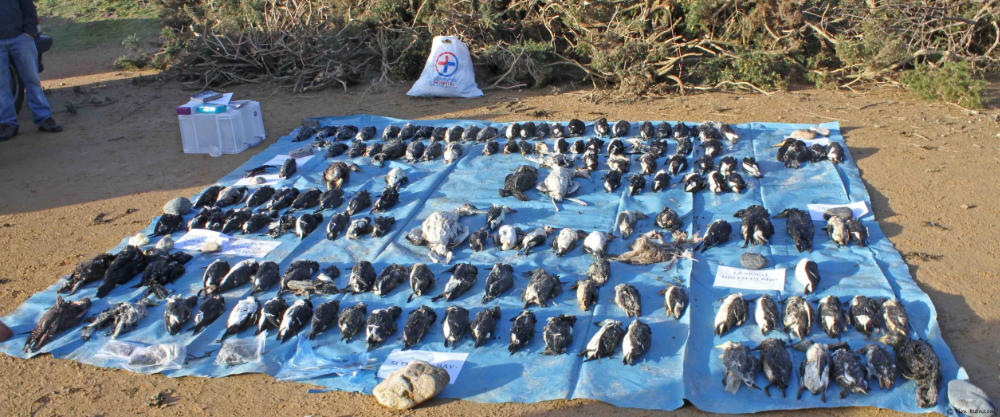
Carcasses collected from a seabird wreck (click here)
Jacqueline Glencross (Institute for Marine and Antarctic Studies, University of Tasmania, Battery Point, Tasmania, Australia) and colleagues have published open access in the ICES Journal of Marine Science, proposing a framework for reporting mass mortalities of seabirds based on data from shearwaters Ardenna spp.
The paper’s abstract follows:
“There is an absence of quantitative criteria and definitions for unusual or anomalous mortality events involving birds, often referred to as “wrecks”. These events most commonly involve seabirds, although terrestrial bird wrecks have also been documented. Typically, the peer-reviewed literature investigating wreck events lacks the details necessary to further our understanding of the circumstances and potential causes of these events. This study reviewed the peer-reviewed literature for wrecks involving Ardenna seabirds (shearwaters), and included grey literature and data collected by citizen science (community) groups. Our results showed a significant time-lag between wreck events and when the data was published in the peer-reviewed literature, which did not occur in the grey literature. Both the grey and peer-reviewed literature were often skewed towards reporting larger wreck events, with only the citizen science dataset capturing smaller wrecks. We outline a proposed framework for reporting mortality events, including the use of quantitative categories to document the numbers of birds involved and taxon-specific thresholds. In doing so, we aim to establish a framework to aid in the quantitative reporting and analyses of future seabird wrecks.”
Reference:
Glencross, J.S., Lavers, J.L., Woehler, E.J. 2021. Proposed framework for reporting mass mortality (wreck) events of seabirds. ICES Journal of Marine Science doi.org/10.1093/icesjms/fsab046.
John Cooper, ACAP Information Officer, 28 June 2021

 English
English  Français
Français  Español
Español